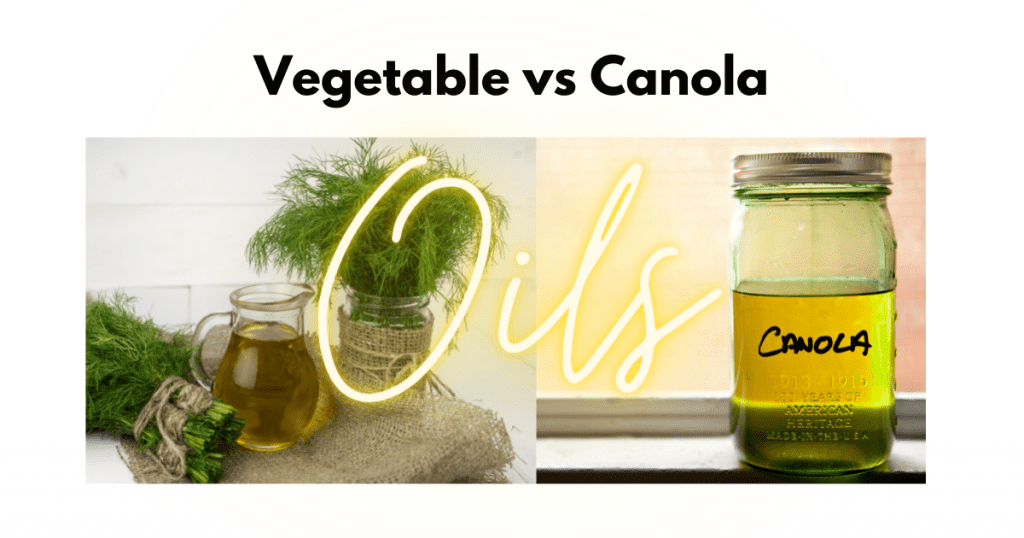Vegetable oil can be substituted for canola oil, regardless if you are baking a treat in the oven or cooking on the stove top. Vegetable oil and canola oil share many similarities, even their appearance is one you may mix up quickly in a trip to the grocery store. You won’t even be able to tell the difference in flavor when your meal is finished!
Keep reading in this article to learn about just how closely these two oils are related, but also to find out their differences so you can make educated decisions in your kitchen endeavors.
Can you subsitute vegetable oil for canola oil?
Absolutely! Substituting vegetable oil is thankfully one of the easiest things to replace when you’re missing ingredients. According to Southern Living, a popular lifestyle magazine that shares recipes and kitchen hacks, vegetable oil and canola oil have many similarities, including: neutral flavor, high smoke point, and low price point.
You’ve probably noticed in using vegetable oil that there isn’t much of a distinct taste or even scent. Whether you are adding it to a pan to sautee some vegetables, putting it in a pot to deep fry something to a crisp, or adding it to your favorite batch of brownies, there is no pungent scent and it doesn’t flavor the food. Canola oil shares those same properties, so that makes it very versatile.
Because of their high smoke point, vegetable oil and canola oil are used interchangably to fry foods – whether browning them in a pan or deep frying them. Having a high smoke point prevents your kitchen from filling with smoke (and aids in keeping spices from also filling the air) whilst you’re cooking and baking.
The low price point makes both of these oils great choices to keep on hand in your kitchen as well. They are fairly inexpensive when compared to other oils, like olive oil. It is easy to buy these oils in bulk from your local grocery stores and even reuse them!
If they are so similar, why would you want to substitute them?
Even though these oils share many similarities, you will find that their chemical composition is what sets them apart. Canola oil has been shown to have many health benefits; there is evidence that it will aid in improving cholersterol levels which ultimately lowers your risk for heart disease.
Canola oil is higher in Omega-3s (which you have probably noticed in many over-the-counter multivitamins) and in monosaturated fats. Monosaturated fats are considered “healthy fats,” which your body needs for energy and function.
A peer-reviewed article published by the International Life Sciences Institute states that the consumption of canola oil influences biological functions that affect biomarkers of disease risk. For someone who is predisposed, or genetically susceptible, to health issues like heart disease, maintaining healthy cholesterol levels and lower blood pressure is imperative. By substituting vegetable oil in your diet with canola oil, this is one efficient and unnoticeable method to making health-conscious decisions.
What are these oils made from?
Vegetable oil is not made from vegetables like you would think. Most oils marketed as “vegetable oil” are primarily derived from soybeans, sometimes even including a mix of canola, corn, sunflower, and other oils. The composition may vary from brand to brand, but is mostly the same.
Canola oil is made from the seeds of the canola plant. It is considered a vegetable oil, but not all vegetable oils are considered canola oils. In fact, most vegetable oils come from seeds and all of those seeds do not germinate to a vegetable producing plant.



